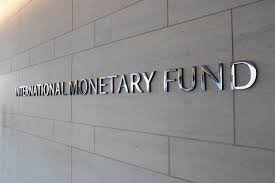An official from the International Monetary Fund said on Monday that new platforms for cross-border central bank digital currencies (CBDCs) might be more effective and secure while still guaranteeing that nations can implement compliance checks and capital controls.
Tobias Adrian, director of the IMF’s monetary and capital markets section, believes that a worldwide CBDC platform that allows for capital restrictions might reduce payment costs. However, such a concept is far different from the decentralized financial institutions that cryptocurrency enthusiasts envision.
“Our blueprint for a new class of platforms would enhance and ensure greater interoperability, efficiency, and safety in cross-border payments, as well as in domestic financial markets,” Adrian reiterated in a speech given in Rabat, Morocco. “The cost, sluggishness, and opacity of cross-border payments comes from limited infrastructure.”
Recently, the Managing Director Kristalina Georgieva said the IMF was “working hard” on a global infrastructure to enable different CBDCs to work with each other, according to Bloomberg.
The new method, which was also described in an IMF Fintech Note released on Monday, could schedule payments without payees disclosing sensitive private information to intermediaries and save liquidity by allowing contracts to be pledged as collateral – all without altering money’s fully fungible character, Adrian added. In September, Adrian first suggested a CBDC platform.
Adrian continued, perhaps dismissing more Innovative suggestions like blockchain-based validation, “The ledger would be controlled by the platform operator.” “The single ledger would ensure that there is a unique description of who owns what, so no double spending can occur.”
The IMF was eager not to undercut the kinds of capital measures frequently imposed on nations suffering a financial crisis, Adrian said, so governments would have the power to restrict their citizens’ transactions in foreign currency and conduct anti-money laundering inspections.
However, easy cross-border payments are frequently cited as a significant benefit of cryptocurrencies, but there is fierce competition against free-floating blockchain solutions being used for that purpose, not least because standard-setters do not wish to undercut governmental restrictions. State-backed CBDCs are being considered by the Bank for International Settlements as well as commercial parties like SWIFT.
While a report from the European Central Bank last year cast doubt on the notion that cryptocurrency can lower the cost of international payments, the Committee on Payments and Market Infrastructures, a standard-setter connected to the Bank for International Settlements, is investigating the impact of stablecoins, tokens tied to the value of a fiat currency.


